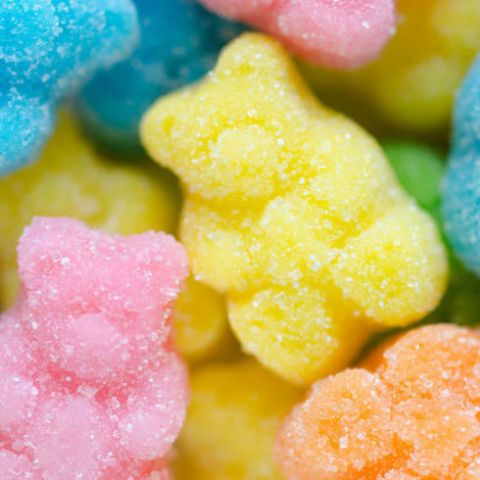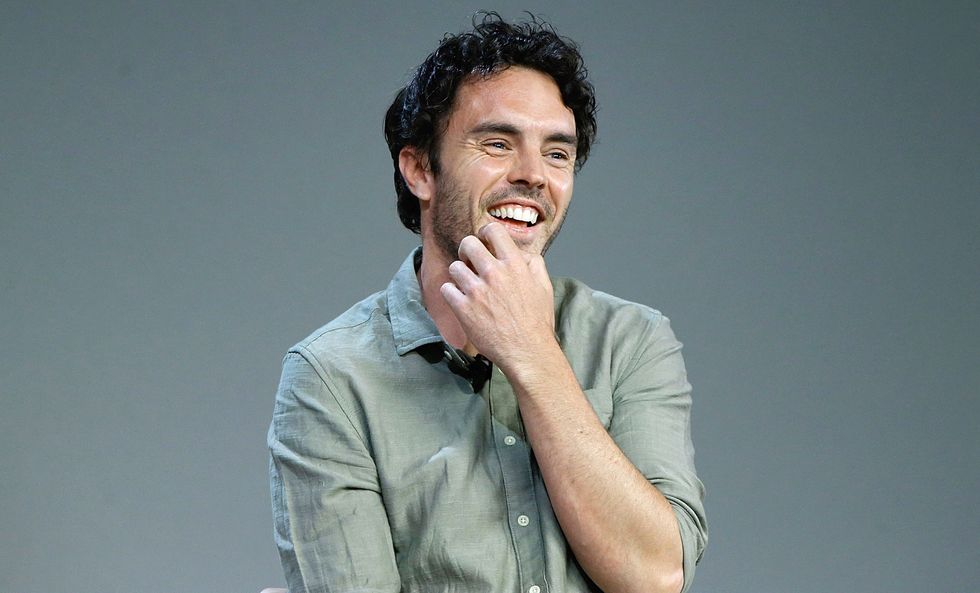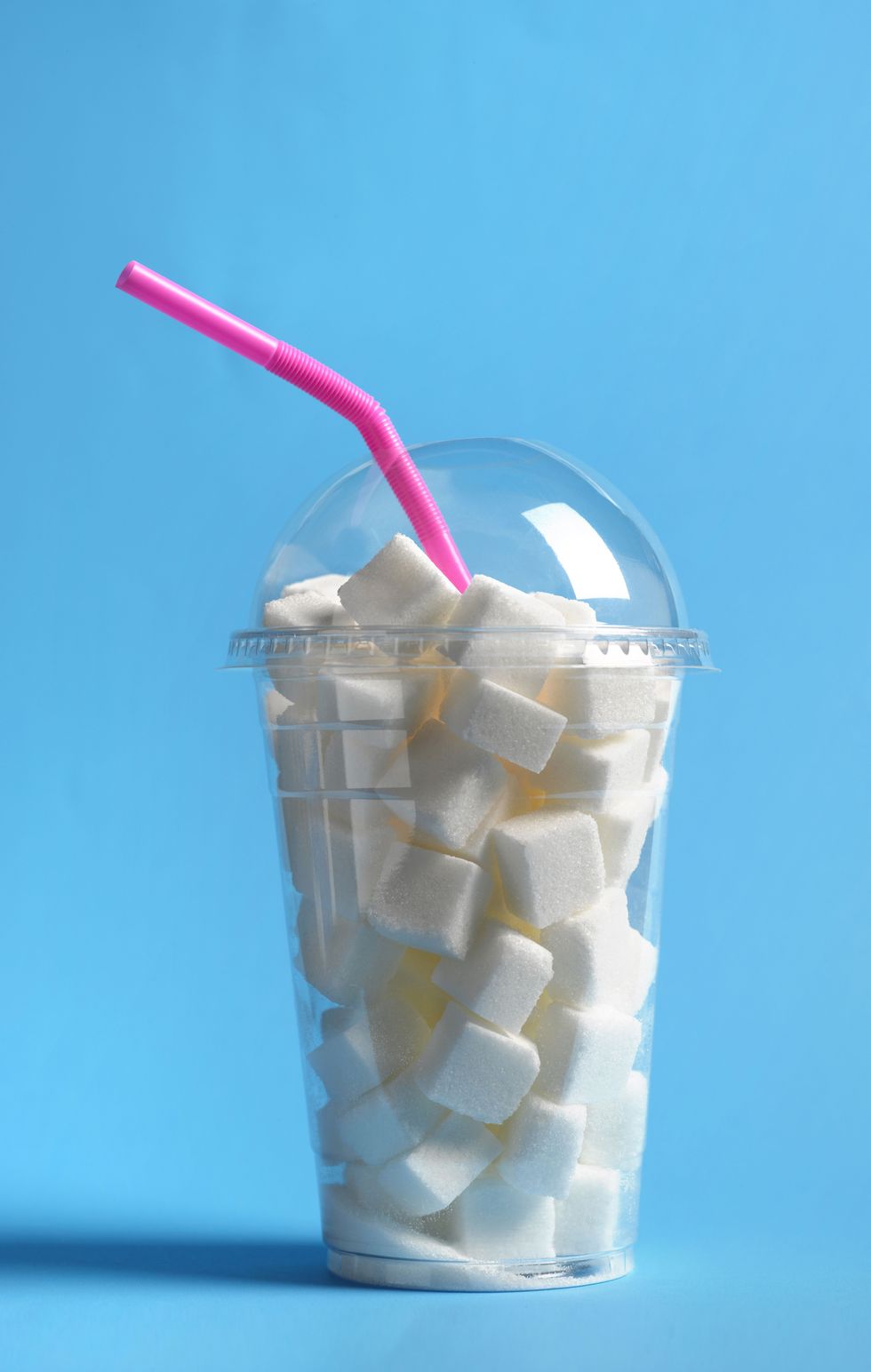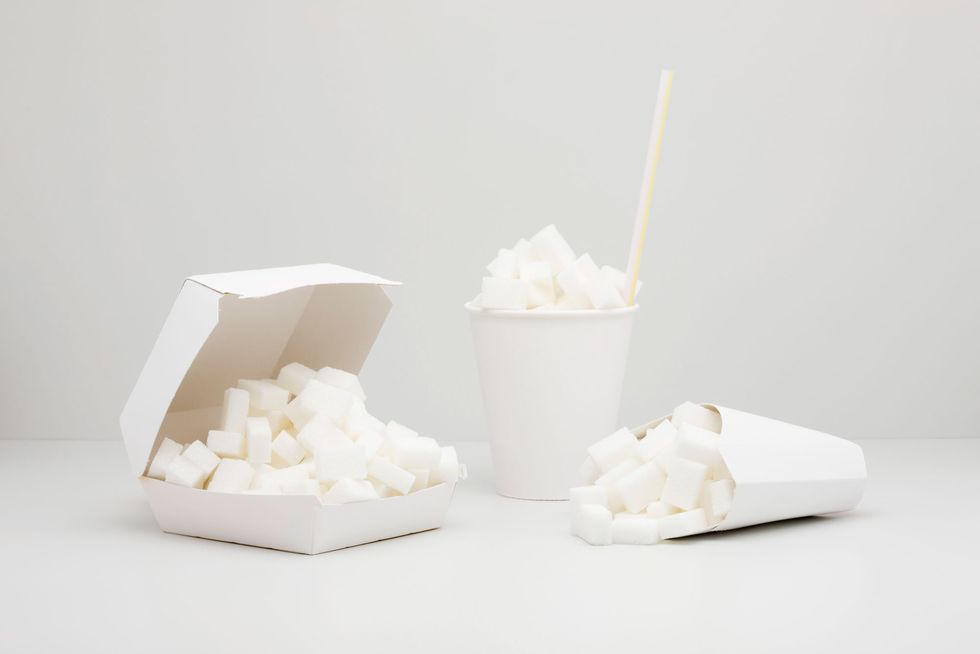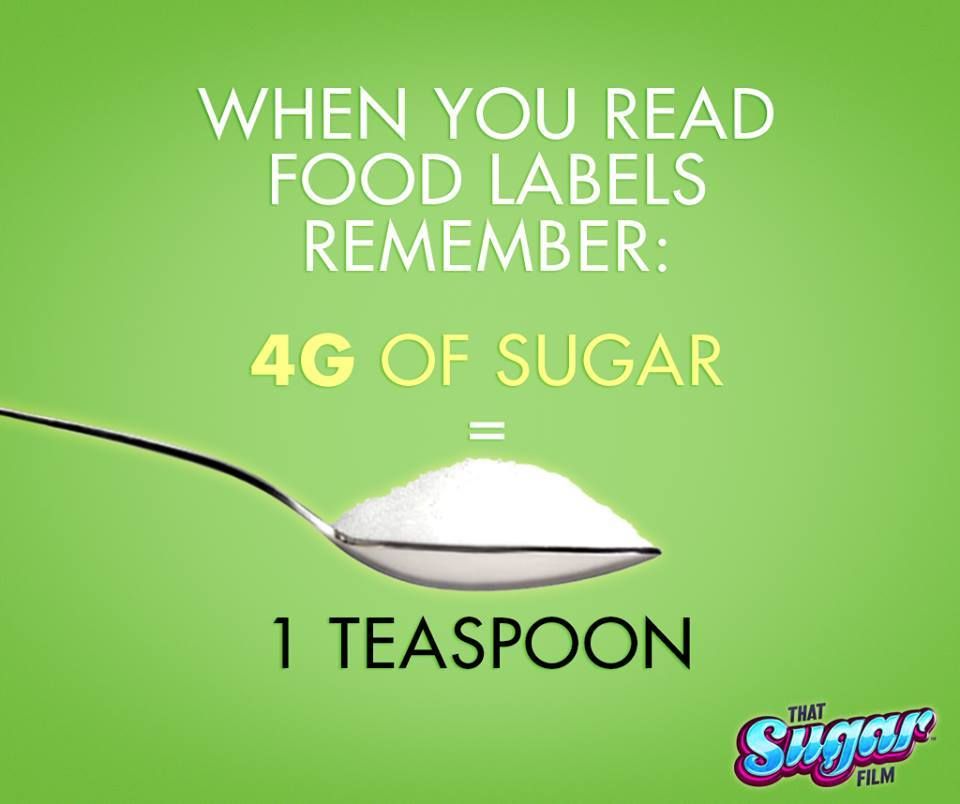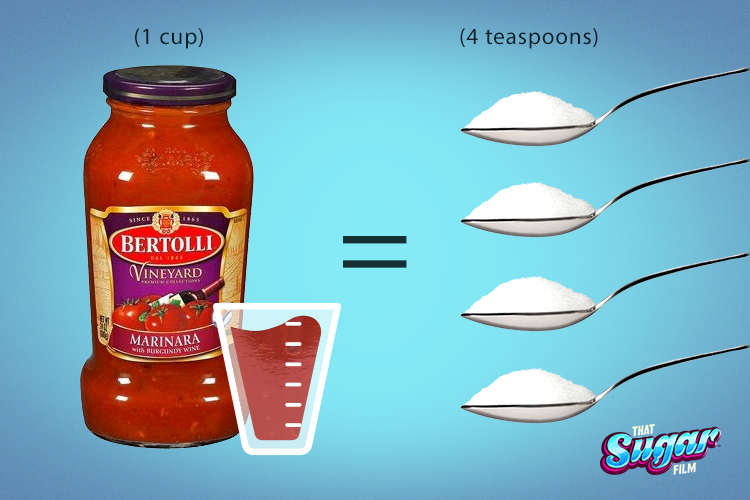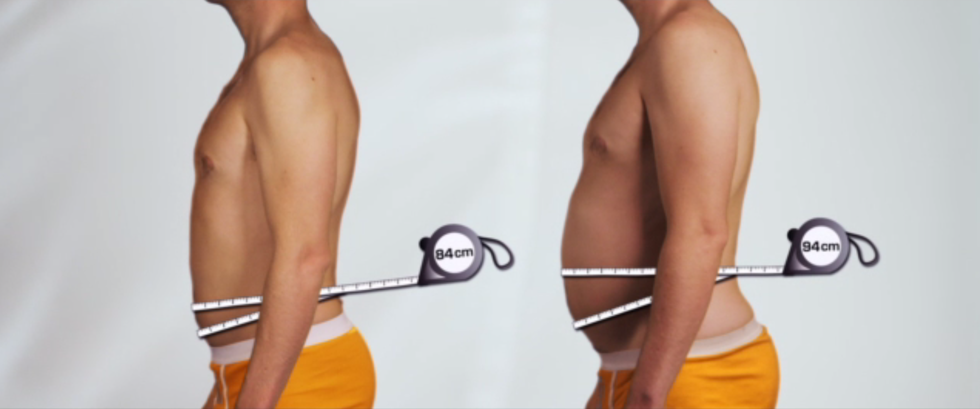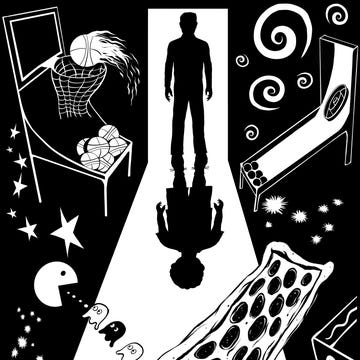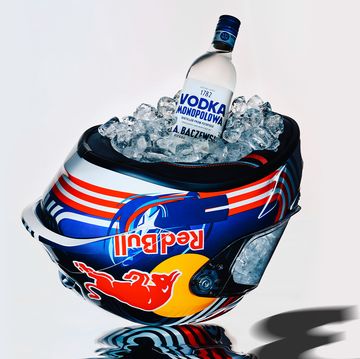Sugar is everywhere and it's in so much of the food that makes up a Western diet, but for the past six years, Australian filmmaker Damon Gameau has managed to steer relatively clear of added sugars. He then voluntarily decided to consume 40 teaspoons of sugar a day (or the amount an average Australian eats every day) for 60 days straight. He documented the process and the results in a documentary film, out now, called That Sugar Film.
So what happened? Among other things, Gameau gained 19 pounds, added 7 percent to his total body fat, and increased his waist circumference by nearly 4 inches. This may not seem shocking or even surprising, except that Gameau didn't scarf down Snickers bars at every meal; he ate low-fat yogurts, granola bars, and so-called healthy juice drinks. Gameau spoke to our friends at Cosmopolitan.com about his life before, during, and after sugar, and why it's such a hard habit to shake.
Before you met your partner Zoe, and she changed your life and eating habits, were you more like the average Australian when it came to your sugar consumption?
Oh, yeah. I used to drink two Vanilla Cokes a day, smoke a pack of cigarettes a day. I'd eat pizza and takeout all the time. I was the classic male in his late 20s who didn't give any thought to nutrition, really. Zoe changed my life entirely. I was suddenly exposed to this different way of eating — eating real foods and vegetables and fruits and snacking on nuts. It completely changed me. That was a big motivation for making the film, was that I knew how different I felt and how different I looked. I thought, Gee, I don't think many people realize that. It was a really strong push for me to get the message out there and help other people.
So you experienced all of these physical effects from your sugar experiment, but you also suffered psychologically as well. What was happening to you?
Zoe described it really beautifully. She said, "Normally you're a very present person." But I noticed that I'd be fine for about 40 minutes and then I'd start to vague out. I'd be aloof, I wouldn't concentrate as well, I wouldn't be as present until I had the sugar again, and then I'd be OK for about 40 minutes. It was a cycle of going up and down throughout the day. I often found that I struggled to sleep well at night. In the morning I'd wake up particularly edgy and grumpy until I got that bit of sugar and then I'd feel normal again. I know not everyone isn't going to be as sensitive as me; I completely acknowledge that. But I suspect that there are some people that really just can't handle it.
How much sugar do you typically consume now?
Very little of it. I get all the natural sugar I need from fruits and vegetables. Every now and again I'll have a bit of a treat, but not really. My dessert these days is frozen blueberries with a bit of cream. My palate has adjusted. Sometimes if I'm out with friends, I'll have a bit of dessert.
It's been 18 months since you completed your experiment. Have you relapsed at all after quitting sugar?
For me, it was very simple to go back to not having sugar. I've lived very clean for the last six years. I don't even drink alcohol. I'm very aware. I'm very sensitive to anything. I even struggle with a coffee. I think a lot of people don't do that. They just put sugar over the top of so many other things. They'll have a couple of coffees in the morning, they'll have alcohol at night, they're having their sugar throughout the day. They're just adrenalized all the time and they don't even realize it. They're not in tune with what their own bodies are telling them.
There was a point in the film where you mention that people often associate sugar with love. Is that a hard thing to let go of?
I think that's one of the biggest issues, is that it's not just a physical addiction that we have. There's an emotional component. Think about how ingrained it is in culture, especially in America. You reward a child with a treat, or you have a cookie. It's just so part of the culture. We know from the science that sugar releases the same opioids in your brain that love does. That's why people during a breakup will eat a tub of ice cream. It's very much a part of our lives.
The message that we're trying to spread is: That's fine. If you still want to have your ice cream or your chocolate at the end of the day — no one's saying don't have that. It's just that most people are completely in the dark about how much sugar they're actually having. The World Health Organization says now for optimal health we should have about six teaspoons of added sugar a day. That is a treat, if you want to have it. But I think it's just about raising the awareness of where it's hiding. That's what's getting people's count up so high. That's why we're seeing so many health problems. It's a lot of things, but sugar is a major player in what's happening at the moment.
How do you manage to eat out? What do you even order?
You start to look out for the signs. If you have sauce, you have a little bit of it on the side. Because we're so good at home, we loosen the shackles a little bit when we're out. I'm not someone who asks the waiter how many teaspoons of sugar are in the sauce. If I'm traveling a lot, it's very hard. There are moments that you have to eat some sugar and that's the way the environment is at the moment. But if you've got that knowledge about how much you're having, you can be more selective. I'm going to have a little bit here in this meal and that's fine. If you can stick to between five and 10, you're going to be just fine.
Will you be dealing with long-term repercussions from the effects of your experiment?
No, we were very careful. I didn't do anything stupid. As soon as I started getting signs that I was getting a fatty liver, I started getting much more regular blood tests. I wanted to make sure we didn't cross any lines. I've completely recovered now. In fact, a lot of my health markers are even better now than they were before the experiment.
I don't think a little bit of sugar every day is going to be toxic for people, not in the way that other substances are. So far, the studies don't point to that. It's only when you're overloading the liver, having a can of Coke a day, then yes, that's going to cause problems. But if you're just having bits and pieces here and there, you're going to be OK. What we really want to push is, avoid the liquid calories. They're the ones that tend to do the most damage: the juices, the sports drinks, the iced teas, and the Coke. The liver really can't handle the tsunami of sugar that floods the liver. That's when you start getting the complications.
You mention in the film that it takes two to four weeks to get off sugar and adjust. How long do you feel like it really takes?
I actually posted an article on our Facebook page that was sent to me by a research student. I think it's the first study of its kind. She made people cut out their sugar for two weeks and tracked what their results were. I think after day three, 53 percent of people said their cravings were gone and they felt better. About 86 percent said that after six days, they felt completely different, they didn't crave sugar anymore. And over 90 percent said after two weeks, that they won't go back. Even when they tried a sugary food it was way too strong and overbearing. I thought that was a fantastic result. After six days, your cravings can disappear. Those six days are worth it in terms of the longevity that you can put on your life.
